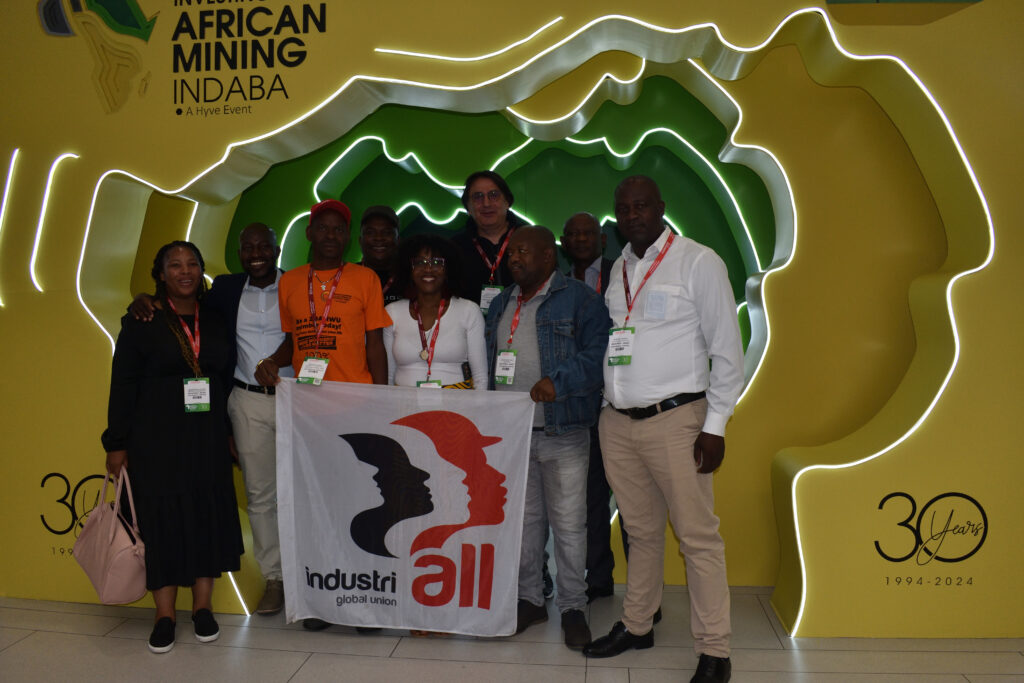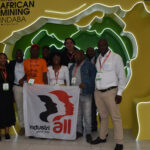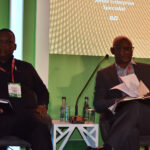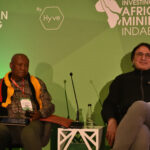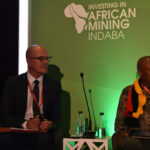Read this article in:
English
8 February, 2024This year's Mining Indaba in Cape Town on 5-8 February, celebrated 30 years of existence with over 10,000 delegates from the mining industry, governments, civil society organisations, and trade unions.
Dialogues and conversations took place under the theme “Embracing the power of positive disruption: A bold new future for African mining.”
In the opening address South African President Cyril Ramaphosa said trade unions have achieved milestones against “the slave wages and appalling human rights and health and safety standards under apartheid.” The achievements included the rights to form trade unions and the protection of fundamental rights at work.
Reflecting on the Mining Indaba’s history, unions said there were some gains for labour and communities.
“As unions reflect on the gains of labour and communities, it is important to state that it was not a smooth journey. From the beginning, unions and communities fought hard for recognition through engagement with the conference organizers on the role that mineworkers, trade unions, and communities played in the mining industry,”
said Glen Mpufane, IndustriALL mining director.
As a result, the Mining Indaba programme now includes the participation of workers and communities to protect their rights and interests in the mining industry. For the last seven years, IndustriALL Global Union affiliates have been taking part in the deliberations at the Mining Indaba and the Alternative Mining Indaba (AMI), and this year the participants came from unions in Botswana, Lesotho, Namibia, South Africa, Zambia, and Zimbabwe.
Amongst the sessions IndustriALL participated in included a panel discussion on “Developing a fruitful and inclusive labour sector – policies, politics and possibilities” in which Kemal Ozkan, IndustriALL assistant general secretary, emphasized on inclusive labour policies that incorporated social dialogue. He said that “mineral resources must be used for the industrialization of the African continent and that a Just Transition must be done on the workers’ terms.”
Mpho Phakedi, the National Union of Mineworkers acting general secretary said:
”The trade union’s main roles and responsibilities are to protect workers’ interests, and those of communities where they live. These interests should be reflected in labour policies.”
Jens Dyring Christensen, ILO senior enterprise specialist, who was also on the panel, stressed on the importance of social dialogue as a policymaking instrument that unions can use.
Other sessions that the IndustriALL delegation participated in were on the just energy transition, the future of coal mining, disruptive strategies on mining and energy and the African Mining Vision, environmental, social and governance (ESG), business and human rights, and critical transition minerals.
Several sessions focused on responsible mining standards. At the roundtable discussion on the role of standards and third-party assurance systems in promoting ESG performance hosted by the Initiative for Responsible Mining Assurance (IRMA) it was reaffirmed that the IRMA Standard for Responsible Mining is a valuable tool which integrated ILO standards, OECD guidelines and human rights due diligence. This integration created a culture of industrial peace, accountability, and meaningful dialogue between workers, communities, and mining companies.
IndustriALL also participated at the AMI whose theme for 2024 was: “Energy transition minerals: Putting communities first for an inclusive feminist future.”
The AMI, which celebrated its 15th anniversary, was formed to provide a platform for mine affected communities and civil society organizations who felt excluded from the Mining Indaba and runs its parallel programmes during the Indaba week. Over the years IndustriALL affiliates have become an integral part of the AMI’s community and civil society dialogues and engaged civic alliances and coalitions on labour issues.
Amongst key issues discussed at this year’s AMI included increased calls for the beneficiation of Africa’s mineral resources, a Just Transition, inclusive approaches on ESG, human rights due diligence, and decent work. Also on the agenda were the formalization of artisanal and small-scale mining and the inclusion of women in mining activities through action against gender inequality.
